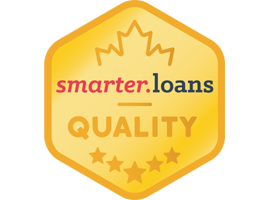Debt consolidation is a financial strategy aimed at helping individuals manage multiple debts by combining them into a single, more manageable payment. This approach can streamline financial obligations and potentially reduce interest rates, making it easier to pay off debts over time. Understanding how debt consolidation works and whether it’s the right choice for you is essential for making informed financial decisions.
What is Debt Consolidation?
Debt consolidation involves taking out a new loan or credit product to pay off several existing debts. This can include credit card balances, personal loans, medical bills, and other forms of unsecured debt. By merging these debts into one, you have a single monthly payment to manage, which can simplify your financial routine. The primary goal is to reduce the interest rates and monthly payments, making debt repayment more affordable and less stressful.
How Does Debt Consolidation Work?
The process of debt consolidation typically starts with assessing your current financial situation. Once you understand your total debt, interest rates, and payment terms, you can explore consolidation options that align with your needs. The new consolidation loan pays off the individual debts, and you then make payments toward this single loan. Some common consolidation options include personal loans, balance transfer credit cards, or home equity loans. Each option has unique terms and conditions, so evaluating them carefully is crucial.
Types of Debt Consolidation
Debt consolidation can take several forms, each suited to different financial situations. Debt consolidation loans are a popular choice, providing a fixed interest rate and repayment term that can help borrowers plan their finances more effectively. Balance transfer credit cards allow you to transfer high-interest credit card balances to a new card with a low or 0% introductory interest rate. Homeowners may consider home equity loans or HELOCs, which often come with lower interest rates due to the collateral involved. Debt management plans offered by credit counseling agencies can also help manage and repay debts with negotiated lower interest rates.
Benefits of Debt Consolidation
One of the main benefits of debt consolidation is the simplification of payments. Managing one loan payment is easier than keeping track of multiple debts with different due dates and amounts. Additionally, consolidating debt can reduce the total interest paid over time, especially if you secure a lower interest rate than your current debts. Debt consolidation may also contribute to improved credit health if you make consistent, on-time payments, as it shows lenders that you are committed to managing your finances responsibly.
Risks and Considerations
While debt consolidation can be a helpful tool, it’s not without its risks. It’s essential to be aware of fees such as origination charges, balance transfer fees, and potential closing costs. Furthermore, using secured loans, like home equity loans, comes with the risk of losing your home if you default on payments. Debt consolidation can sometimes lead to higher interest rates if your credit score is not strong, negating the benefits. It’s vital to ensure that consolidation addresses your underlying financial habits and doesn’t simply delay future debt problems.
Who Should Consider Debt Consolidation?
Debt consolidation is best suited for individuals who can secure a loan with an interest rate lower than their existing debts. It’s also beneficial for those who find managing multiple monthly payments overwhelming. If you have a steady income, a decent credit score, and a clear plan to avoid incurring additional debt, consolidation could simplify your financial obligations. However, if your debt exceeds half of your income or you struggle to make minimum payments, more comprehensive debt relief solutions may be needed.
Steps to Take Before Consolidating Debt
Before consolidating debt, it’s important to assess your complete financial picture. This includes listing all debts, including balances, interest rates, and monthly payments. Checking your credit report and score is another crucial step, as it impacts your loan terms. Researching various consolidation options and comparing interest rates, repayment terms, and fees can help you choose the best option. Consulting with financial advisors or credit counseling services can provide valuable guidance tailored to your specific circumstances.
Step-by-Step Guide to Consolidating Debt
The debt consolidation process begins with gathering detailed information on your existing debts. Once this is done, compare loan options and select one that fits your needs. Apply for the chosen loan and, if approved, use the funds to pay off your outstanding debts. Finally, create a structured repayment plan for the new loan and adhere to it, ensuring that you do not accumulate new debt while paying off the consolidated loan. Discipline and consistency are essential to making debt consolidation successful.
Comparing Debt Consolidation Options
Different debt consolidation options come with their own sets of pros and cons. Debt consolidation loans often come with fixed interest rates, making budgeting easier. Balance transfer credit cards are ideal for those who can pay off their balance within a promotional period to avoid high-interest rates afterward. Home equity loans and HELOCs typically offer lower interest rates due to collateral but carry the risk of losing your home if you default. Debt management plans provide an alternative by working directly with creditors to negotiate better terms.
How to Choose the Right Debt Consolidation Option
Choosing the best debt consolidation option depends on factors such as your credit score, the amount of debt, and your repayment capability. For those with good credit, a personal loan with a low-interest rate can be a viable option. If you’re disciplined and can pay off debt quickly, a balance transfer card with a 0% introductory rate could save on interest. Home equity loans may be a good choice for homeowners who need a lower rate and can manage collateral risks. Weigh the benefits and drawbacks of each option before making a decision.
Alternatives to Debt Consolidation
Debt consolidation isn’t the only solution for managing debt. Debt settlement involves negotiating with creditors to pay a lump sum less than the total owed, but it can impact your credit score. Bankruptcy is another option for severe debt situations, offering legal protection and debt discharge but carrying long-term credit consequences. Negotiating directly with creditors for lower interest rates or better repayment terms can also help. Financial counseling can assist in creating a budget and debt repayment plan without consolidating.
Real-Life Examples and Case Studies
Learning from real-life examples can help illustrate the benefits and challenges of debt consolidation. Successful cases often involve individuals who used personal loans or balance transfer cards to manage their debts and improve their credit. On the other hand, failed attempts may include those who did not change their spending habits, leading to further debt accumulation. Analyzing these scenarios can provide valuable lessons for making informed decisions.
Common Pitfalls to Avoid
One common pitfall in debt consolidation is accumulating new debt after consolidating existing balances. This undermines the benefits of the initial loan and can worsen your financial situation. Another mistake is not fully understanding the terms of the loan, such as variable interest rates or hidden fees. Selecting the wrong type of consolidation loan that doesn’t fit your financial needs can lead to higher costs in the long run. Awareness and careful planning are key to avoiding these issues.
Debt Consolidation Scams and How to Avoid Them
Debt consolidation scams prey on those looking for financial relief. Warning signs include requests for upfront fees, aggressive sales tactics, and unrealistic promises like guaranteed approval. Always work with reputable lenders and check their credentials through consumer protection agencies. Reading reviews, verifying accreditation, and seeking recommendations can help ensure you choose a legitimate company. Knowledge and caution are crucial in protecting yourself from scams.
FAQs About Debt Consolidation
Debt consolidation raises many questions, such as its impact on credit scores, eligibility with poor credit, and how long the process takes. While consolidation can initially lower your credit score due to credit inquiries, consistent payments can improve it over time. Bad credit doesn’t exclude you from all options, as some lenders specialize in working with such cases. Debt consolidation typically takes several weeks from application to funding, depending on the lender and type of loan.
Financial Habits to Maintain Post-Consolidation
Consolidating debt is only effective if followed by sound financial habits. Budgeting is essential to ensure you stay within your means and don’t accumulate more debt. Building an emergency fund can prevent the need for credit in case of unexpected expenses. Monitoring your expenses and prioritizing saving will help maintain financial health. Adopting these practices will enable you to make the most of debt consolidation and improve your financial stability.
When Debt Consolidation is Not Enough
In some cases, debt consolidation alone is not enough to manage severe financial challenges. If your debt is overwhelming or if you’re unable to make minimum payments, more comprehensive debt relief solutions may be necessary. Options like debt settlement or bankruptcy may need to be considered, despite their potential impact on credit. Consulting a financial professional can provide insight into whether consolidation is right for you or if an alternative path is better suited for your situation.
Conclusion
Debt consolidation can be a beneficial tool for managing multiple debts, simplifying payments, and potentially reducing overall interest. However, it’s not a one-size-fits-all solution and should be considered carefully based on your unique financial circumstances. By understanding the different types of debt consolidation, benefits, risks, and alternatives, you can make informed decisions that support long-term financial health.






